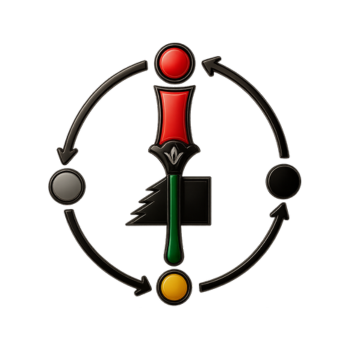-
A very important ethnic group in the principal location of the northeast of the country of Gabon in Central Afrika are the Bakota. They call their language “iKota” but they are also known as Kota, Kuta and iKuta. Their neighbours, the Fang call them Mekora. Because they are organised along patriarchal lines, the Bakota have developed many sub-groups based on various patriarchies. Thus, one can find the Menzambi, Bougom, Sake, Ikota-la-hua, and Ndambomo who will say that they are also Bakota and in effect, these are subclans with their own particular style and accent of speaking the iKota language.The meaning of the term Bakota is said to be controversial, but it seems likely that the idea of “bonding” is central to the meaning in the iKota language; this is in line with much of the thinking in Afrikan philosophy. When people come together in family, they are bonded in one way or another. It might be consanguine or it might be by experience and political connection. Thus, the Bakota are said to be people who have tied themselves to each other in a deeply spiritual and physical sense. The word “kota” means to “bind”. They also suffered the same fate as other ethnic groups in Afrika when European colonisation came and divided up members of their families. But known for their deeply spiritual beliefs, they have produced some of the most significant art in Afrika. Their conception of ancestral or guardian personalities has evoked some of the more singularly spectacular sculpture of such figures. The work is usually done in copper or brass but may also be done in wood. These figures are relics of the great ancestors or spirits of some distant force that protected the people during times of trouble.
3 Comments-
HTP
-
Hotepu…thank you.
-
-
Beautiful and spiritual enriching
-

